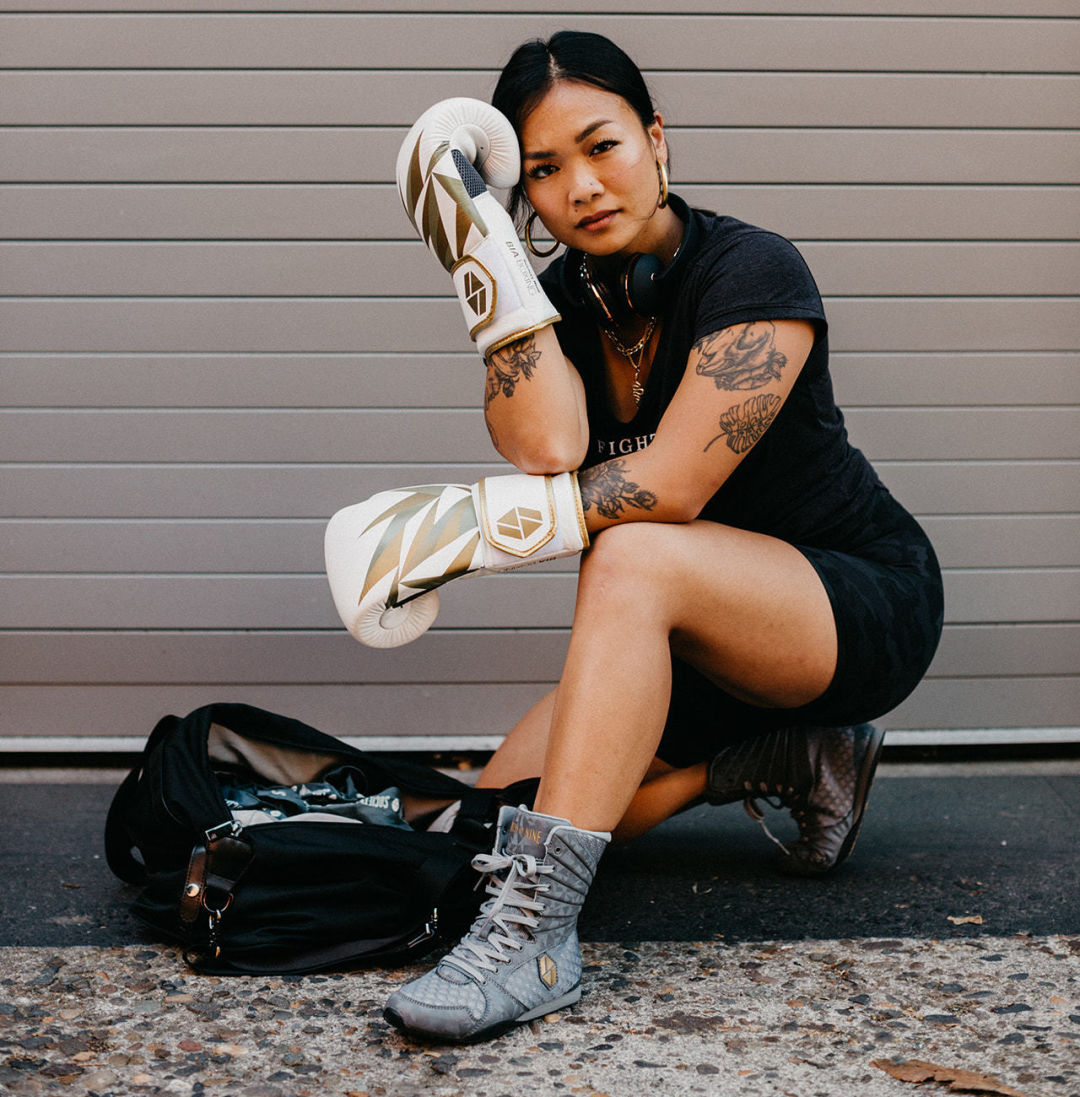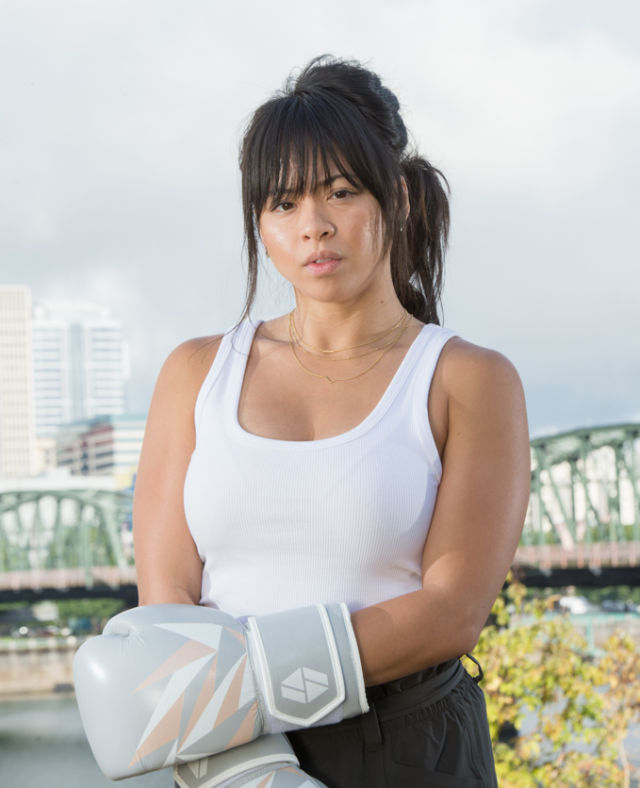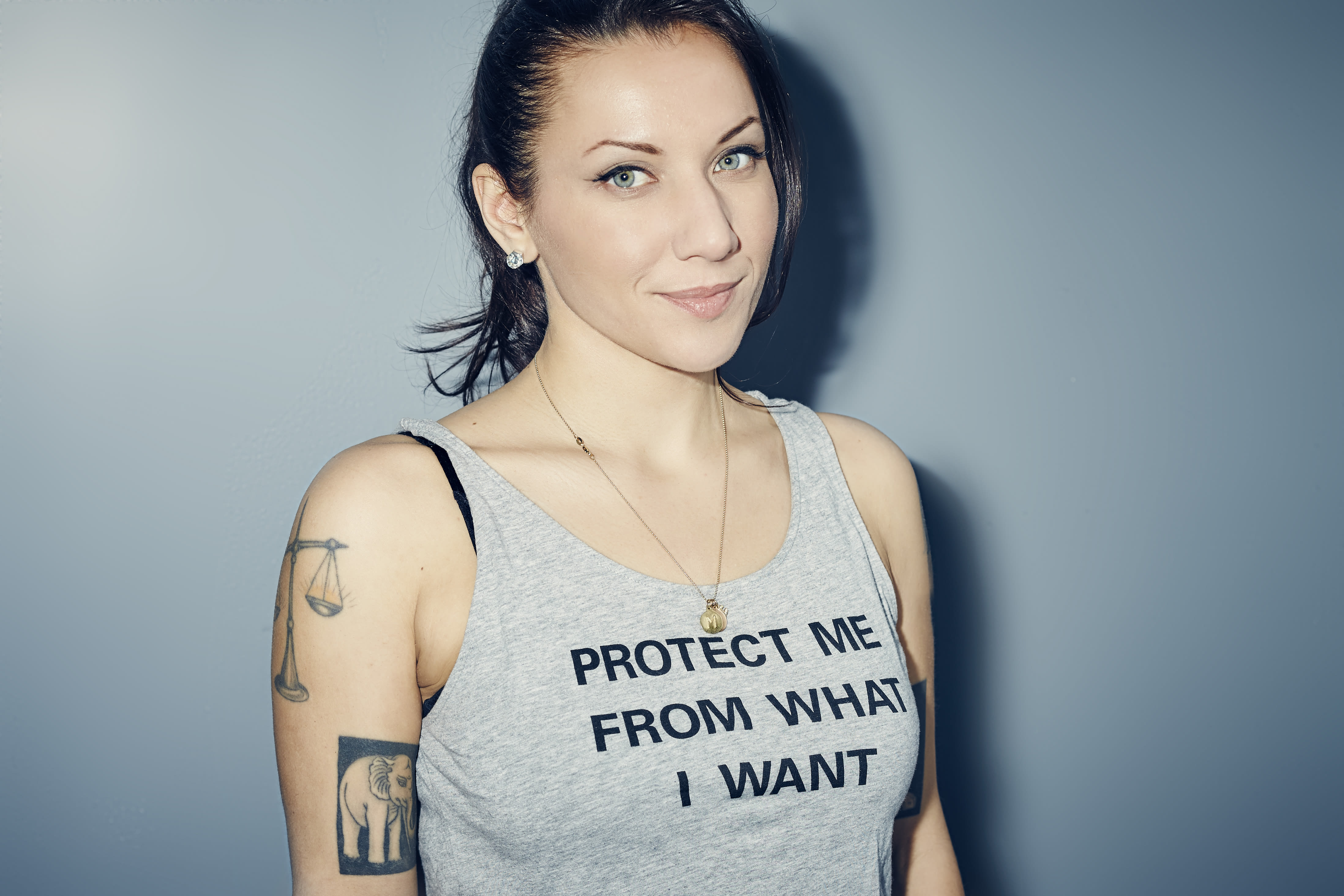How to Be a Better Boss: Advice from an Award-Winning Entrepreneur

Society Nine offers women's boxing gear and sportswear.
In 2020 businesses seemingly sorted into one of two categories: those that didn’t make it and those that did through extraordinary measures. In the case of Society Nine—a women’s boxing gear and sportswear company founded by former kickboxing instructor Lynn Le—it's the latter. Not only did Society Nine manage to pull through, the company also won the Oregon Entrepreneurs Network award last year in its “Overcome” category for “resilience, adaptability, good teamwork, and gifted leadership.” We spoke with Le about her leadership skills.
How did you learn how to be a boss?
I learned how to be a boss, first and foremost, by having managers whose management styles I felt disappointed in [for] a number of reasons: lack of compassion and empathy, incapable of listening, incapable of asking hard questions, constantly looking for yes people, and not surrounding themselves around enough no people, non-collaborative, etc. So, for any number of reasons I learned from bad bosses who were quote-unquote bad or ineffective, who didn't have my respect for any number of reasons. That's the first thing.
It’s not a skill people are born with.
I always felt like I was meant to do something bigger than myself. Not in a self-glorifying way, but I've always felt I wanted to be in a position where I woke up every day feeling like I was doing something that was much bigger than myself.… Even when I started Society Nine it wasn't, "I want to create this brand in my image." It was more about creating this brand because I used to be a kickboxing instructor and I literally had students telling me they can't find any good options that they get excited about to train. If they can't do that, that means they don't have a tool that can help them unlock whatever it is that they're trying to do, so they’re powered and empowered.
When I think about Society Nine's mission, it is to create tools that empower self-identified women to uncover their power and strength—in mind, body, and soul. And that to me is a greater mission because, whether it's shoes or it's boxing gloves, I want every customer when they put it on, they feel like it is a gateway for them to do that. And for me, that does legitimately feel like a higher calling.

Society Nine founder Lynn Le won the Oregon Entrepreneurs Network award last year in its “Overcome” category.
And having that personal vision for yourself impacts how you lead?
I mean that sense of service, that sense of a passion to serve, that also is internal. So this idea of "how did you learn to become a boss or learn how to be a boss," I think the other part of that is thinking about service to my team. How do I want to serve my team so that they can be the best so that they can unlock also their best potential, as well as help build this great thing with me?
It sounds like that's a conscious decision you’re making to be a boss to help them be their best selves.
It's intensely an intentional decision. I think a lot about empathy in my job and in my role. I think a lot about the women who came to my [kickboxing] classes and why they came. It's not enough to just say, they're there to lose some weight. That might be the superficial first reason why they come, but they also come for reasons that are a lot more philosophical and emotionally soul-deep than that. Oftentimes that has a lot to do with reclaiming a sense of power. And so when I think about that, as a manager, or a boss, or whatever, it's really important for me to think about that in the context of my team. I look at my team and I think to myself, I never want to be an owner or a boss where my employees are going to a boxing class to beat the crap out of the bag because they're so angry at me, or frustrated because I disenfranchise them, or I demean them in some way. Whether I do it intentionally or not, I do my damnedest to not be that person.
Has that gotten harder with COVID at all under the increased stress? To still be the manager you want to be?
One thing I would say is really clearly identify your self-care tactics. That's not just a millennial women's media communications tactic. That is a fact. I mean knock on wood because COVID is [still] going on, but we survived 2020 and I'm so grateful. But one of the only reasons why I feel I personally survived as a human being was because the right kind of advisors and mentors around me, but then self-care. I was really deliberate about the things I chose to do for self-care and the time I put in. And I also had the encouragement of my team to invest in self-care. And I think that exchange of support from, employees to me the quote-unquote boss was because they care about me, and I couldn't have earned that care if I didn't have their respect and trust.




